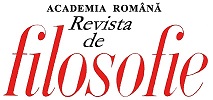Ideea naturalizării epistemologiei. Soluția lui Hume pentru problema lui Quine
Naturalizing Epistemology: Hume’s Solution to Quine’s Problem
Author(s): Sergiu BălanSubject(s): Epistemology, Early Modern Philosophy, Contemporary Philosophy, Philosophy of Science
Published by: Editura Academiei Române
Keywords: naturalized epistemology; evolutionary epistemology; natural selection; Hume; Quine;
Summary/Abstract: Quine’s idea of a naturalized epistemology built on the discoveries of psychology runs into a fundamental difficulty: we cannot establish the psychological truths unless we already have some previous epistemological principles, which leads us into a circular argument. In this article I will try to show that this situation is similar with that of David Hume, who discovered that it is not possible to justify the principle of the uniformity of nature either on reason or on experience. I will argue that the solution Hume finds to overcome this difficulty is the same with the one that can be found in the ideas of contemporary evolutionary epistemology and could provide a solution to the main problem anyone who wants to construct a naturalized epistemology has to deal with. Both the belief in the principle of the uniformity of nature and the fundamental structures of human cognitive psychology must be taken as valid and functional because they are hardwired in our brains as products of the long evolutionary history of our species, and have thus been tested and validated in a Popperian manner, by the mechanisms of natural selection in a way that no other scientific idea has never yet been tested and corroborated.
Journal: Revista de filosofie
- Issue Year: LXX/2023
- Issue No: 6
- Page Range: 601-610
- Page Count: 10
- Language: Romanian

